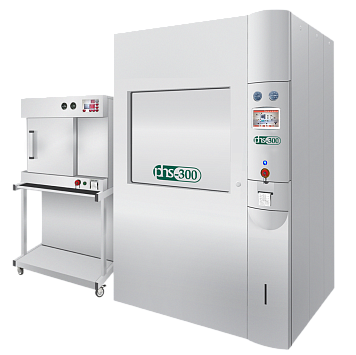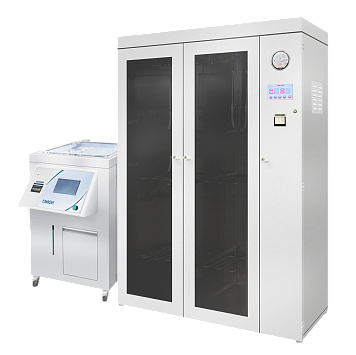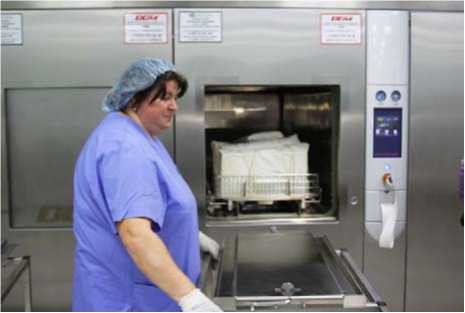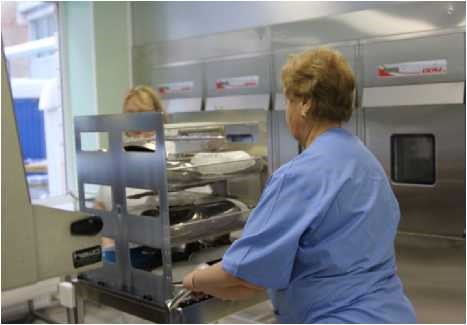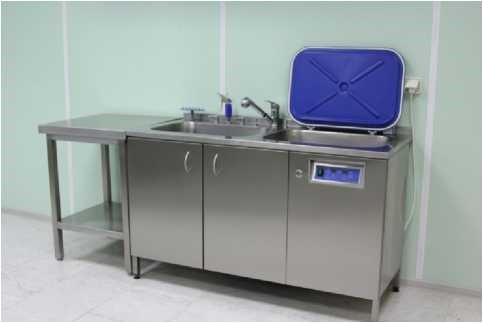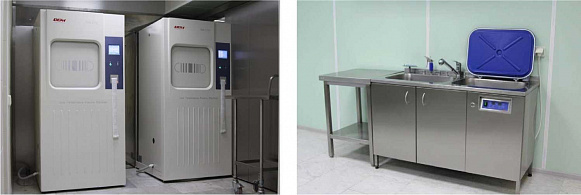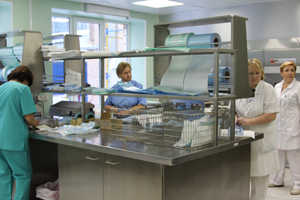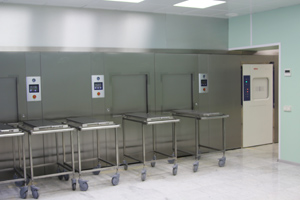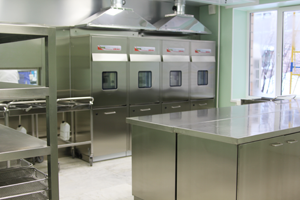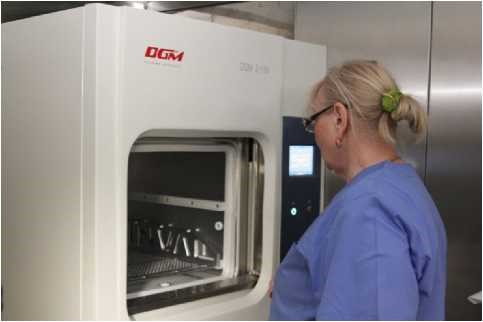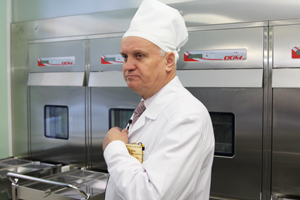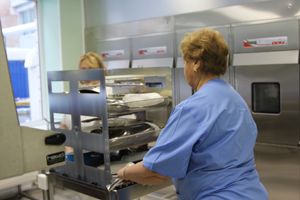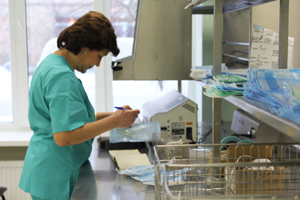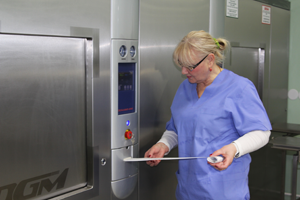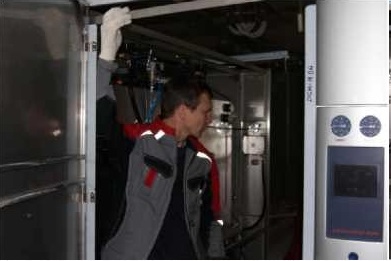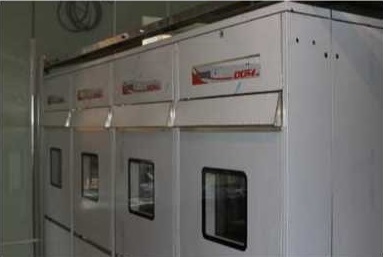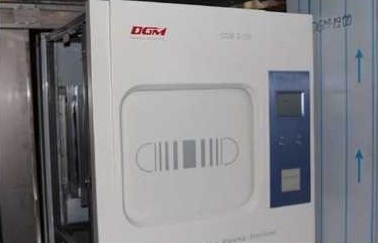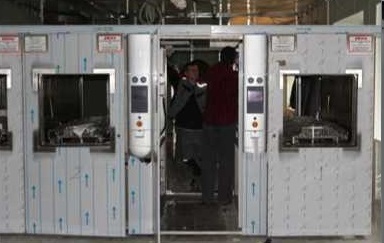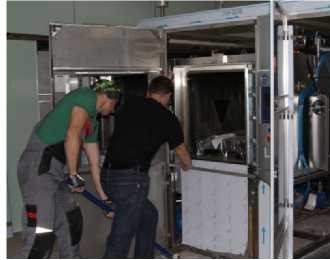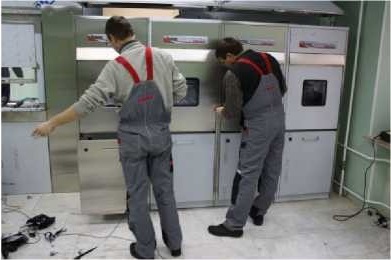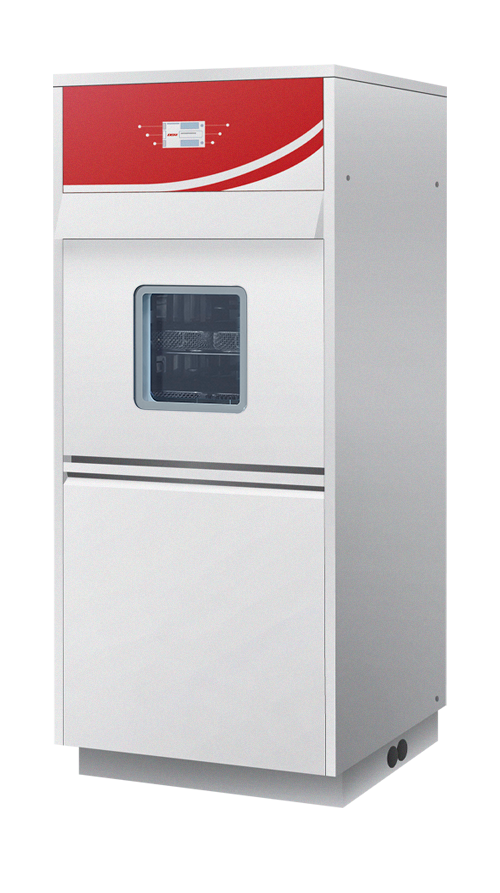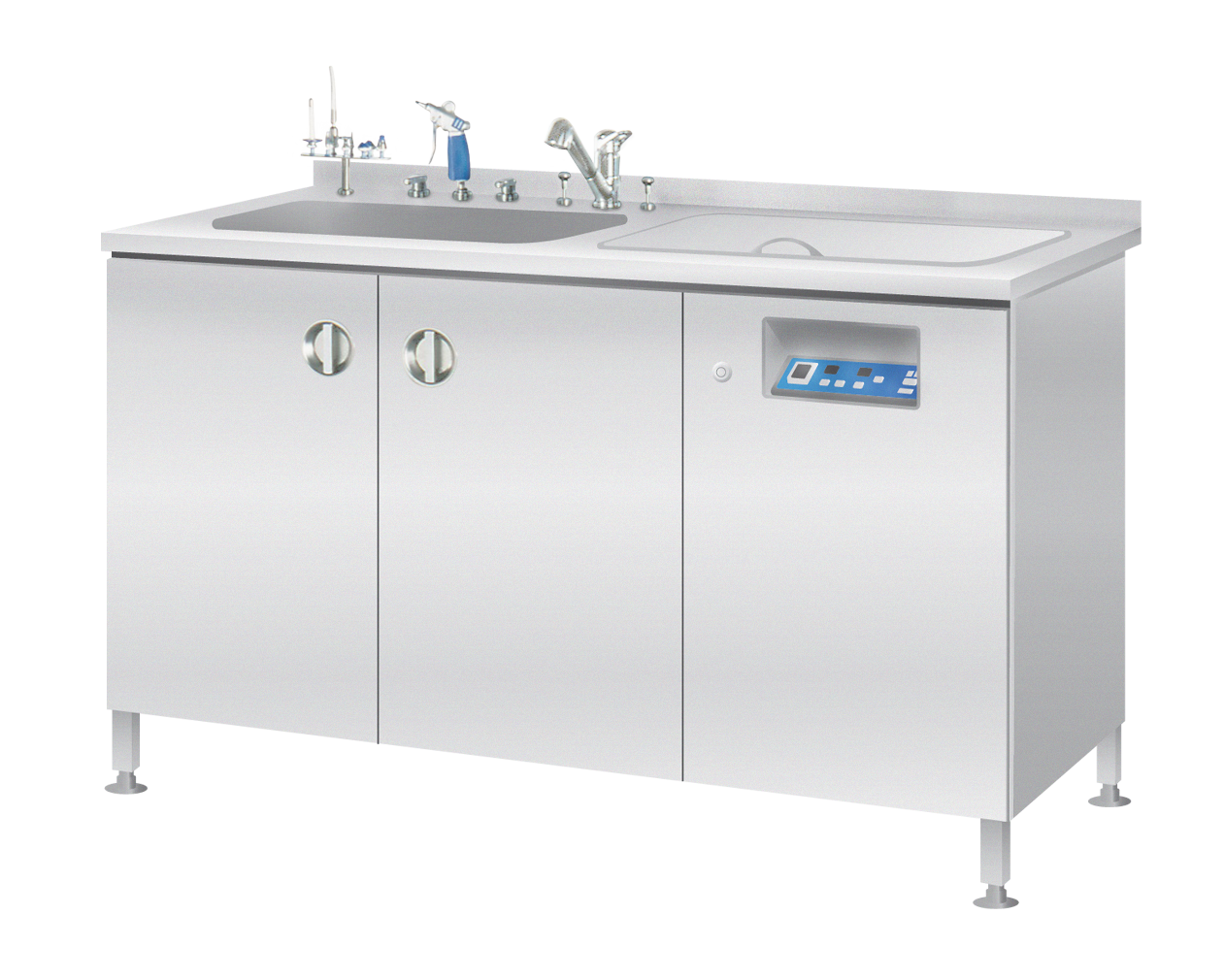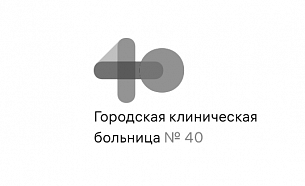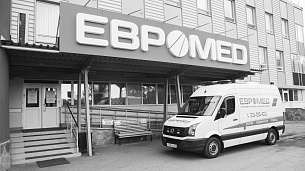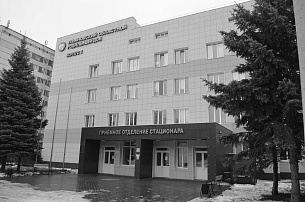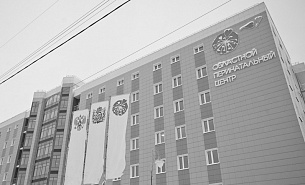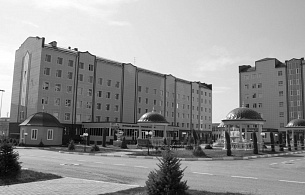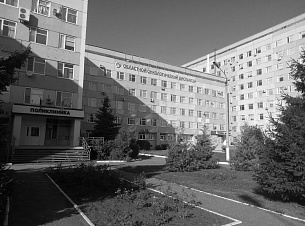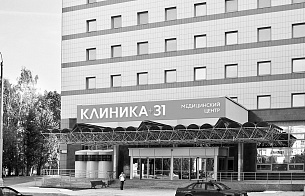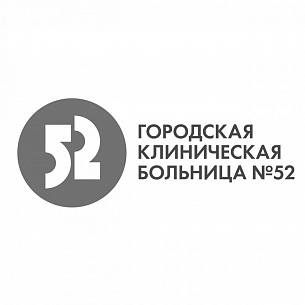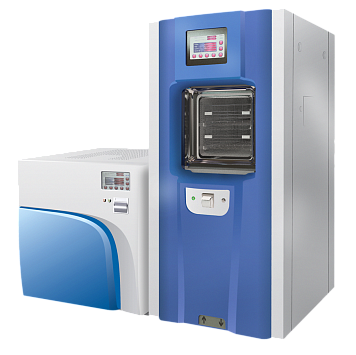
City Clinical Hospital No. 119 of the Federal Medical Biological Agency of the Russian Federation
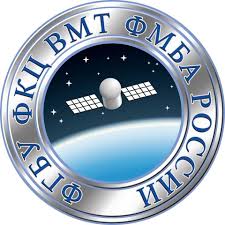
About Project
Conditions corresponding to the highest requirements, medical and other equipment, highly skilled personnel, preserving the best traditions of the departmental clinic, to make full use of its capabilities to provide round-the-clock medical care at a high level. This is ensured by the availability, in addition to specialized, of two intensive care units of surgical and therapeutic profile, as well as intensive care unit for cardiac surgery patients. The hospital's in-patient capacity is 800 beds.
The decision to build a hospital to provide quality medical care for employees of the space industry was made in 1967, and the hospital was launched on September 29, 1975. Over 35 years, hundreds of thousands of rocket and space industry patients have been treated in the hospital. The clinic successfully participates in the program of the priority national project "Health" to provide high-tech medical care in the following fields: abdominal surgery, gynecology, gastroenterology, neurology, neurosurgery, oncology, cardiovascular surgery, urology, transplantology, and endocrinology.
In 2006, the hospital established the Center for Cardiovascular and Endovascular Surgery of the FMBA of Russia. Restoration of myocardial blood supply in cases of coronary heart disease (coronary artery bypass grafting), correction of congenital and acquired heart defects in conditions of artificial circulation, operations on extracranial vessels of the brain, aorta and its branches, main and distal vessels of extremities are the main directions of the Center's activity. Modern minimally invasive intravascular surgeries such as angioplasty, stenting, thrombus destruction and trapping, embolization, etc. are widely used.
The Department of Hemodialysis and Kidney Transplantation is the main one in the FMBA of Russia. All kinds of extracorporeal detoxification using the latest generation equipment are used here. The experience of more than 750 kidney transplants has been accumulated. The latest immunosuppressive and immunocorrective regimens from the leading global producers are used.
The clinic employs highly qualified specialists - 4 professors, 18 doctors of medical sciences, 48 candidates of medical sciences, 169 specialists of the highest and first category, professional nursing staff.
The renovation of the Central Sterilization Supply Department: new technologies and an integrated approach:
The Central Sterilization Supply Department performs disinfection and sterilization of medical instruments and equipment, including those made of thermolabile materials coming from the operative unit and surgical departments.
The Federal Medical Biological Agency's Clinical Hospital No. 119 performs more than 10,000 operations a year. At the same time, the tasks of processing, disinfecting, and sterilizing instruments are handled by a very small number of staff, the CSSD employs eight people. The department’s operation is carried out in one shift.
The large-volume, floor-standing steam sterilizers installed when the hospital was built were supplemented in the 1980s with low-temperature formaldehyde sterilizers, automatic washer-disinfectors, and smaller-volume non-passable steam sterilizers. Since that time and for more than 20 years, the equipment has not been updated or upgraded.
In addition, there were difficulties with maintenance due to the fact that the available equipment was made by different manufacturers. Therefore, all the equipment has exhausted its technical resource, while failing to meet modern requirements for functions, ergonomics,
efficiency and convenience for use by the personnel in a number of characteristics, and the operation methods of the CSSD (subject to separation into clean and dirty areas) are outdated and do not meet modern requirements.
The solution proposed by Pharmstandard-Medtechnika was to replace all the main technological equipment with new one made by DGM. DGM sterilizers and washing-disinfection machines are manufactured at several international production sites. The wide distribution network allows DGM great flexibility in developing and producing equipment, while retaining control over all crucial phases of the production process and products quality.
DGM equipment is widely used in Russia, more than 5000 units have been installed.Features:
- Compliance with international standards
- Wide model range - all the necessary modern equipment to equip the CSSD
- The hospital receives a comprehensive solution from a single vendor
- Developed technical support service, fast delivery of spare parts
Stages of the CSSD modernization:
- Design development
- Installation supervision, commissioning, employee training
- Opening
- Maintenance
It was decided to change the technology and divide the CSSD into three zones - dirty, clean, and sterile - as required by sanitary rules and regulations.
Installation and commissioning
All works on preparation of design solution, dismantling of old equipment, delivery, installation, commissioning and training of personnel to operate the equipment were performed by Pharmstandard-Medtechnika LLC.
Due to the fact that floor standing sterilizers are uncomfortable for personnel and require a lot of physical effort when working, it was decided to replace them with sterilizers with rectangular, ergonomic and personnel-friendly chambers.
The application of new, environmentally and human-friendly methods of low-temperature reprocessing resulted in the installation of plasma sterilizers (low-temperature hydrogen peroxide plasma sterilization) instead of the old formaldehyde sterilizers.
New high-capacity washing-disinfection machines with a chamber volume of 250 liters were installed, which fully meet the hospital's needs for washing, pre-sterilization cleaning and disinfection of medical devices, and their walk-through design allowed to meet the requirements for zoning and physically separate the dirty area from the clean.
A set of new CSSD equipment:
As a result of the project implementation, the following DGM equipment was installed in the CSSD of the Clinic Hospital No. 119 of the Federal Medical Biological Agency:
Three pass-through steam sterilizers DGM AND-800
- сompliance with international and Russian standards
- large volume of the sterilizer chamber - 800 liters
- low energy consumption
- desktop version
Four pass-through washing-disinfection machines DGM ES 250P
- сompliance with international and Russian standards
- washing chamber volume - 250 liters
- the largest number of user programs
- low energy consumption
- integrated high performance drying system
- intelligent security and locking system
- short cycle time
- low water and detergent consumption
Two pass-through low-temperature plasma sterilizers
DGM Z-150
- high performance
- short cycle time
- low cost of consumables per cycle
- the safest method of low temperature sterilization
DGM QX 1200 Ultrasonic Washing Machine
- combination of mechanical and ultrasonic washing in one piece of equipment
- ideal solution for prewashing medical devices
- volume of the ultrasonic bath - 60 liters
Project outcomes and results
- The quality and reliability of sterilization has improved, and consequently, the hospital's overall epidemiological control system has also improved significantly.
- The new equipment makes it possible to cope with the increasing volume of sterilized instruments and materials (the number of operations in the clinic is growing every year, 500-700 more operations in 2012 compared to 2011).
- Careful reprocessing of expensive heat-labile equipment and instruments by modern methods (plasma sterilization) significantly extends their useful life.
- The arrangement and maintenance of process equipment has been simplified and improved, as all equipment is provided by one supplier.
- All this will reduce both the number of postoperative complications due to nosocomial infections and the cost of patient care.
Project gallery
Equipment used
Leave a request for our services
Or contact us:
Email:
salesblank@blankphs-mtblank.ruPhone:
8 (495) 739-39-45

